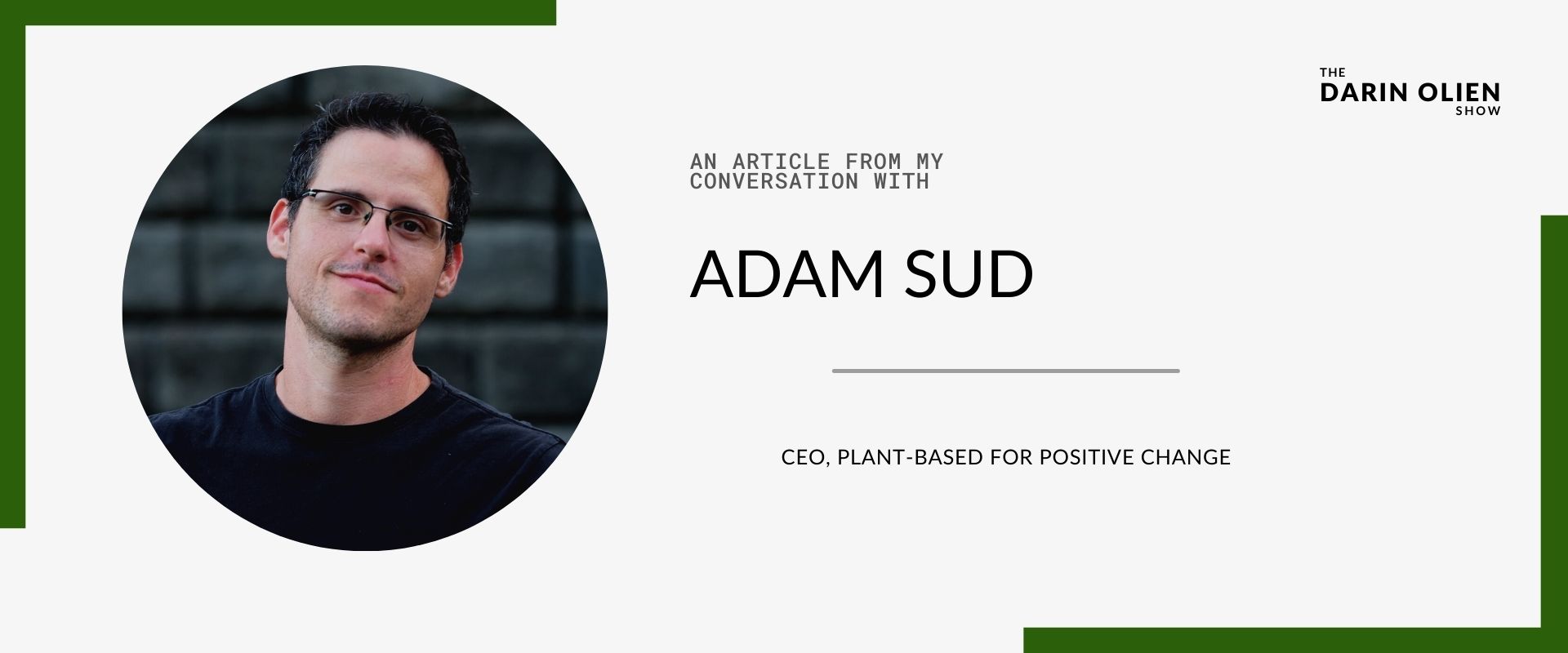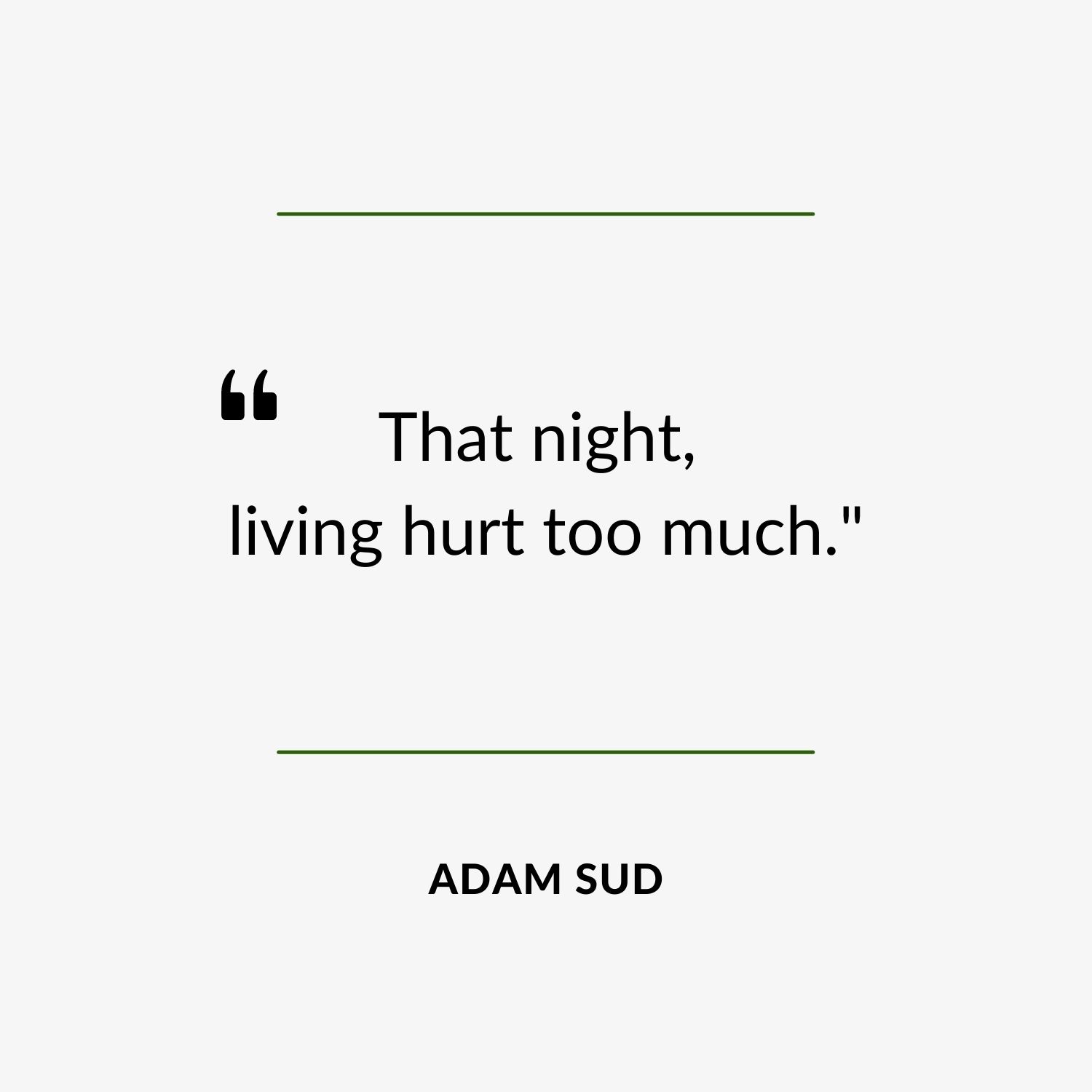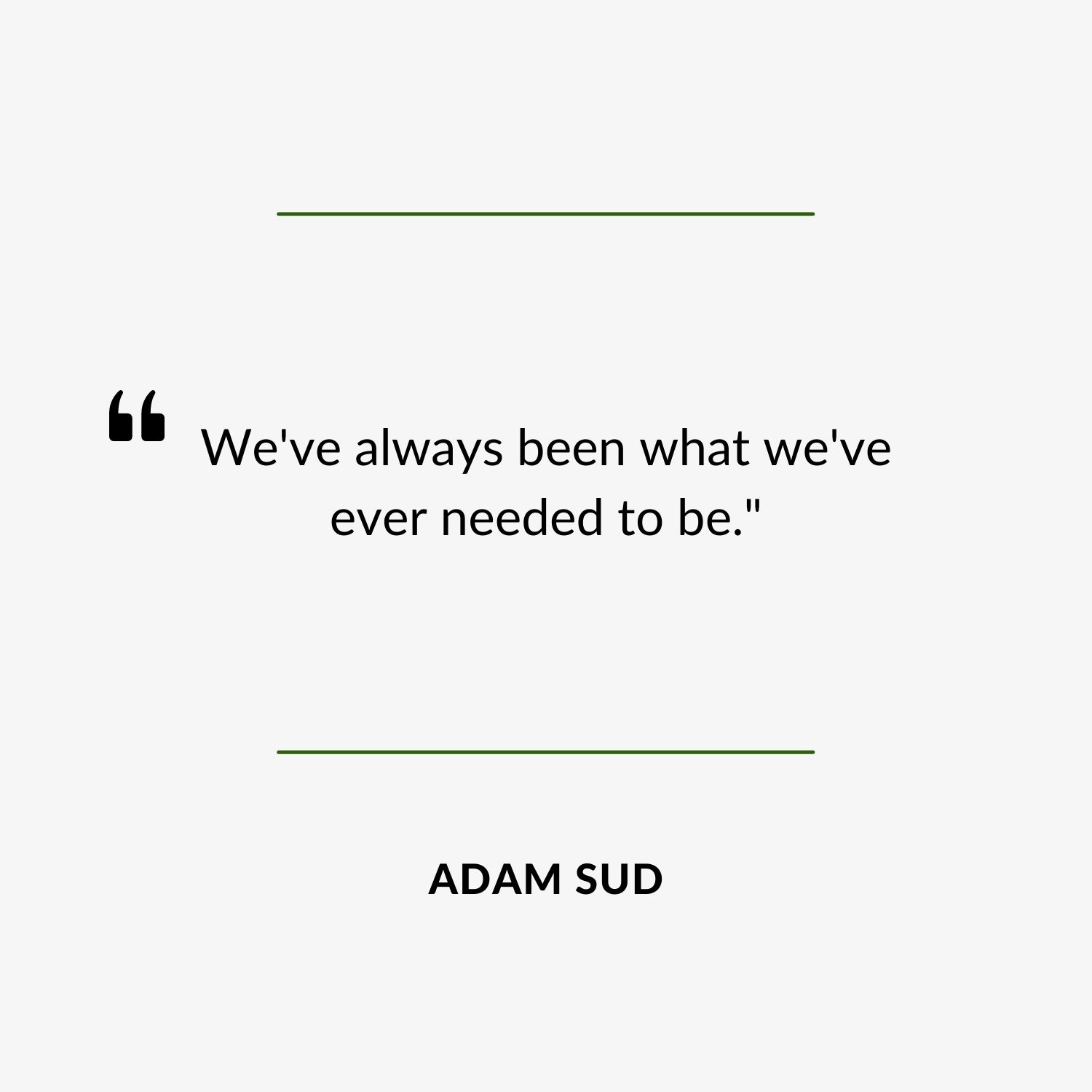27 Oct Could a Plant-Based Diet Help Addiction Recovery?

Podcast: Play in new window | Download
Subscribe: RSS
When you’re firmly in the grasp of a disease like addiction, maintaining healthy eating habits isn’t high on the priority list. After months or even years of extreme substance abuse, combined with a terrible diet, your health can suffer dramatically. Diabetes, heart conditions, cancers, and multiple mental health problems are just some of the issues facing recovering addicts today.
But, could a plant-based diet improve all that, especially within the addiction recovery process? One man seems to think so.
On a recent episode of The Darin Olien Show,
I sat down with the founder of The INFINITE Project, Adam Sud. Adam has a deep relationship with addiction because he was, in fact, an addict. After becoming hooked on Adderall in high school, Adam spent most of his twenties going through a constant cycle of drug abuse and binge eating fast-foods.
 The more he consumed, the heavier he got, and the worse he started to feel within himself. As a result of his all-consuming lifestyle, he was over 300lbs with Type-2 diabetes.
The more he consumed, the heavier he got, and the worse he started to feel within himself. As a result of his all-consuming lifestyle, he was over 300lbs with Type-2 diabetes.
He was broke, unemployed, isolated, and rocketing towards an early grave.
So, on August 12th, 2012, he decided to take matters into his own hands and commit suicide by drug overdose. “That night, living hurt too much,” Adam’s voice trembles. “In that moment, it was the worst it had ever been.”
After waking up in a pool of vomit, in his hoarder-like apartment, surrounded by junk-food packets and pills, he knew he needed help. It took multiple stays in rehab and sober living facilities, but Adam eventually gained sobriety and a new lease on life.
Oh, by the way, he also lost over 100lbs, got rid of his diabetes, and totally optimized his physical health. “How?” I hear you ask.
By adopting an active, plant-based lifestyle, that’s how.
The INFINITE Project
Adam was blown away by the power plants had on his whole recovery. Here he was, out of rehab, healthier than ever, medication-free and fully connected to his most authentic self. However, his friends who were also coming out of recovery, still needed medication and were riddled with chronic diseases.
Knowing his diet played a huge part in his recovery, he wanted to learn more. But, as Adam started researching, what he found was absolutely nothing. Diddly squat!
Not one piece of research into the effects of nutrition on addiction recovery!
So, five years later, he took matters into his own hands. He began The INFINITE Project alongside lead investigator Tara Kemp and authors of The Alzheimer’s Solution, Dean & Ayesha Sherzai.
This influential study aims to understand the effects of implementing a nutrient-dense diet and nutrition education in early addiction recovery.
“What we’re looking at is how food education, as well as movement and mindfulness, affect various outcomes of measuring recovery.”
A Study of Two Halves
The study consists of two groups. The first on is The Controlled Diet, which uses a slightly elevated version of the standard western diet. So think of it as a diet plan including meat, eggs, and dairy. But without the nasty processed foods, caffeine, and inflammatory oils such as corn or sunflower oils.
Secondly, there’s The Treatment Diet. This is an entirely plant-based diet that is both oil and sugar-free. “What we’ve discovered is that in every single measurable outcome, the plant-based group is doing better.”
Everyone’s Microbiome Matters!
If you’ve been around healthy living circles for a while, you may have heard about your gut microbiome. “The microbiome is 4-6 pounds of bacteria that exists within your gut, that do functions for you that your body can’t do for itself,” Adam explains. “We’re going to look at how all these relate to changes in those validated scales of psychological health outcomes.”
By tending to the good bacteria in your gut, you can improve your health to no end! These microbes not only improve your digestive health and brain function but can also reduce diabetes and boost your immune system.
Basically, if your good gut bacteria is happy, you’re happy.
Feeding your gut with the right kinds of foods is really important, especially during the recovery process. Probiotics, fermented foods, fiber-rich fruit and veg are essential. If you want to improve your gut flora, incorporate sauerkraut, legumes, beans, and probiotic yogurt.
Knowledge Is Power
One of the biggest elements of The INFINITE Project’s program is education. Because the more you know, the more you can empower yourself to make better decisions- especially when it comes to your health.
“We’re also doing nutrition education for both groups,” Adam beams. “We want the individuals to have the self-efficacy that’s gained from knowing what they’re doing for their body.” The Controlled Group receives the standard American Disease Association (ADA) Nutrition Education, and the Treatment Group gets a plant-based nutrition education.
The Recovery Process
Adam’s recovery wasn’t just about the food he was eating, but the love and support of the people around him.
“I honestly believe most of the things I’ve struggled with in life started the day the world presented me with an opportunity to believe that I needed to be something other than myself in order to be accepted,” he explains, “and I believed it.”
Sadly, so do many other addicts. Think about it, when we feel unwanted, forgotten, or are hurt and in pain, we look for ways to soothe that feeling.
“Recovery is a practice of remembering that we’ve always been what we’ve ever needed to be,” Adam proclaims. “More than anything, someone who is struggling just wants to know that they have not been forgotten by the world.”
So if you know someone who is struggling with addiction, the best piece of advice Adam can give is to just be there, and let them know they are loved, no matter what.
To donate to The INFINITE Project and keep this kind of research in motion, go to Adam’s GoFund Me page by clicking HERE!
For more on my conversation with Adam, listen here.
Podcast: Play in new window | Download
Subscribe: RSS


Sorry, the comment form is closed at this time.